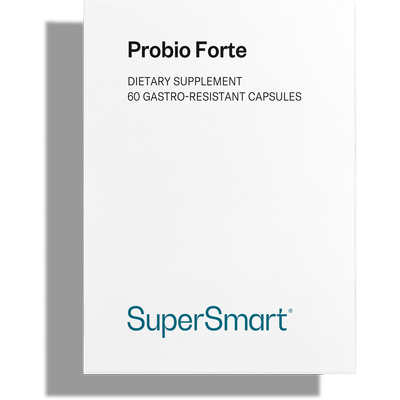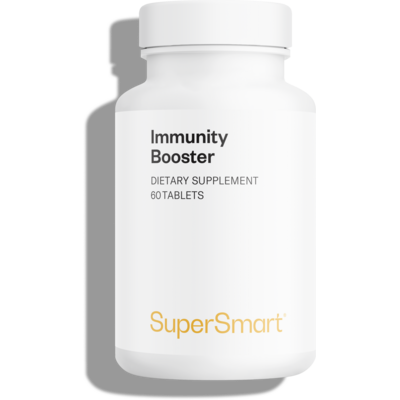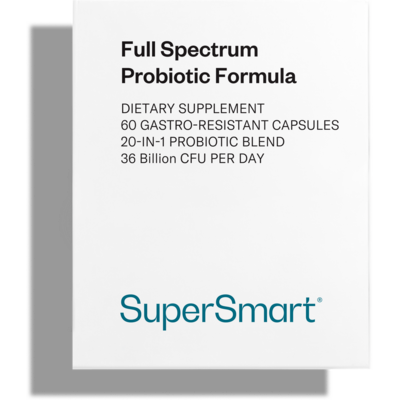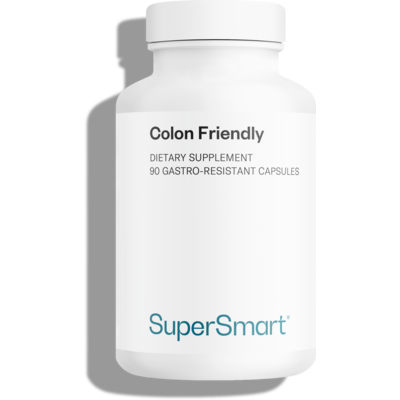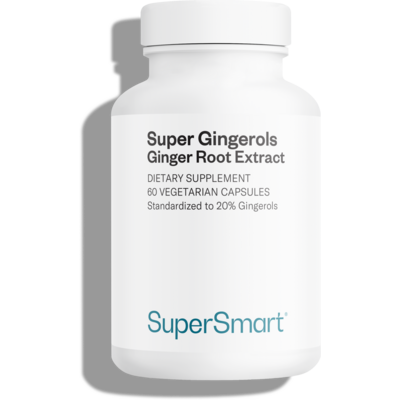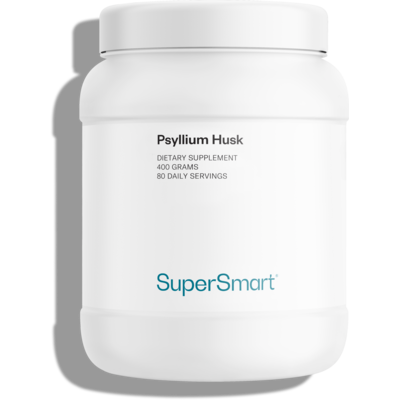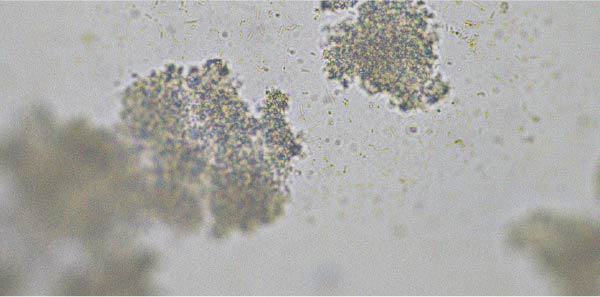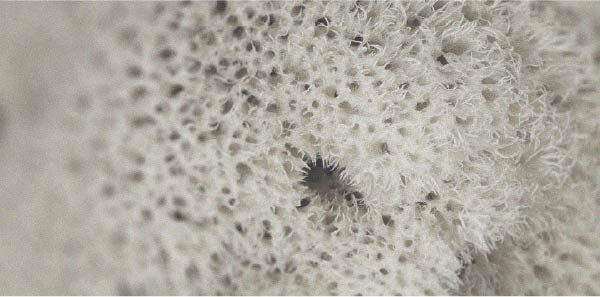What should you eat if you have gastroenteritis?
Usually triggered by a virus or bacteria, gastroenteritis is inflammation of the digestive mucosa which causes diarrhea and vomiting. Discover what to eat to feel better when you’re suffering from this complaint.

Gastroenteritis: inflammation due to various causes
Defining elements
Gastroenteritis is inflammation of the lining of the digestive tract. It causes diarrhea which may be accompanied by nausea and/or vomiting, abdominal pain, moderate fever, and sometimes, blood in the stools.
This general description actually covers several forms of gastroenteritis (1):
- viral gastroenteritis , usually caused by a rotavirus or adenovirus. Being viral, it is highly contagious, and is usually seasonal, occurring mainly in winter.
- bacterial gastroenteritis , usually caused by the bacterial strains Escherichia coli, Salmonella enterica or Shigella dysenteriae. The latter is the result of poor hygiene (for example, low standards of cleanliness among restaurant staff).
- parasitic gastroenteritis, caused by an intestinal parasite (Giardia) or amoeba.
Gastroenteritis: how is it treated?
- generally speaking, viral gastroenteritis is not treated, except for providing symptom relief;
- as antibiotics can also cause diarrhea, they are not usually prescribed for gastroenteritis, except when the infection is caused by specific bacteria;
- however, parasitic gastroenteritis is treated, with special anti-parasitic drugs.
Gastroenteritis: is it better to eat or fast?
The initial reflex when suffering from a gastrointestinal disorder is to fast. But that’s the wrong approach: it’s crucial to carry on eating when you have gastroenteritis.
Eating actually helps the lining of the gut to heal and provides the body with the macronutrients and micronutrients it needs to combat the condition and regain strength.
That doesn’t mean, however, that you should eat huge meals. It’s much better to eat small, light meals, and frequently.
It’s also important to stay very well hydrated to prevent the dehydration that diarrhea and vomiting can cause.
Gastroenteritis: what should you drink?
What should you drink in the case of vomiting and gastroenteritis?
If the gastroenteritis is making you vomit, it’s best to stick to water, sweetened perhaps, with a little honey. Herbal or green teas are also good options as they offer the benefits of the plants from which they’re made, while light, fat-free broths contain valuable minerals and vitamins.
Conversely, it’s important to avoid:
- citrus fruit juices as they will acidify the stomach and make things worse, even damaging the lining of the stomach;
- caffeine, which may encourage diarrhea (so no standard tea or coffee);
- sugary drinks;
- alcohol;
- fizzy drinks;
What should you eat if you have gastroenteritis-induced diarrhea?
Generally speaking, starches are the best choice when you’re suffering from gastroenteritis and diarrhea.
Rice, pasta, carrots, potatoes, etc. provide the body with calories and thus energy, and can form a kind of protective ‘plaster’ for the lining of the digestive system.
You can also eat eggs, fish and lean meat (such as turkey) to provide your body with sufficient protein.
On the other hand, you should avoid eating fibre - so no lentils (or pulses in general), wholegrain rice, etc, and no non-starchy vegetables, at least while you wait for symptoms to ease.
What should you eat for gastroenteritis-related vomiting?
The same guidelines apply in the case of vomiting, but make sure you reduce the amount you eat and increase the frequency.
The key is to avoid overloading an already-fragile stomach too soon. But it’s still important to eat so that you’re not just vomiting bile, which is not only painful but can also cause other inflammation, especially of the esophagus and oral mucosa.
Are there any fruits you can eat when suffering from gastroenteritis?
Generally speaking, fruit is too acidic and high in fibre to be eaten when you have gastroenteritis.
The exception is raw banana which is actually beneficial as it provides numerous vitamins (C, E, B6, B9 and provitamin A) and is also a starch. Stewed apples may also help.
What about yogurt?
If they are lactose-free, or you have no problem tolerating lactose, you can eat low-fat yogurts; they actually provide lactic bacteria which are good for the gut microbiota, like probiotics (2).
What dietary supplements can you take to support intestinal health?
Always seek advice from your doctor before taking any medication or supplements in this context.
It’s worth noting that in North Africa, they have a traditional remedy for relieving vomiting: a teaspoon of cumin powder, a use that’s been well-studied (3)…
ginger is also known for its anti-nausea effects, recognized by the WHO. You can take it in the form of ginger extract capsules, such as the supplement Super Gingerols (4).
Once the main symptoms have disappeared, it’s a particularly good time to start a course of probiotics to help restore your gut microbiota to a normal state. There are a number of comprehensive probiotic formulations available for this.
You could, for example, choose from Probio Forte, Colon Friendly (especially popular with IBS-sufferers) or Full Spectrum Probiotic Formula (which contains no less than 20 different strains of microorganism) (5).
Psyllium may also be of benefit in reducing diarrhea. It helps to firm up stools as its mucilage absorbs water from the gut. But be sure to take it with plenty of water, especially in the case of gastroenteritis (to avoid becoming dehydrated).
Last but not least, it’s a good idea to give regular consideration during the year to supporting your immunity against pathogens, with targeted supplements (such as Immunity Booster).
SuperSmart ADVICE
References
- https://www.msdmanuals.com/fr/professional/troubles-gastro-intestinaux/gastro-ent%C3%A9rites/gastro-ent%C3%A9rites
- SZAJEWSKA, Hania, GUARINO, Alfredo, HOJSAK, Iva, et al.Use of probiotics for management of acute gastroenteritis: a position paper by the ESPGHAN Working Group for Probiotics and Prebiotics. Journal of pediatric gastroenterology and nutrition, 2014, vol. 58, no 4, p. 531-539.
- AGAH, Shahram, TALEB, Amir Mehdi, MOEINI, Reyhane, et al.Cumin extract for symptom control in patients with irritable bowel syndrome: a case series. Middle East journal of digestive diseases, 2013, vol. 5, no 4, p. 217.
- Ernst E, Pittler MH. Efficacy of ginger for nausea and vomiting: a systematic review of randomized clinical trials. Br J Anaesth. 2000 Mar;84(3):367-71. doi: 10.1093/oxfordjournals.bja.a013442. PMID: 10793599.
- ANSARI, Fereshteh, PASHAZADEH, Fariba, NOUROLLAHI, Elaheh, et al.A systematic review and meta-analysis: the effectiveness of probiotics for viral gastroenteritis. Current pharmaceutical biotechnology, 2020, vol. 21, no 11, p. 1042-1051.
Keywords
5 Days
great products and prices
great products and prices
Marie
11 Days
Easy to navigate site
Easy to navigate site, had what I was searching for, good price. easy order-check out
James Tucker
17 Days
My skin is clearing up nicely!
Pretty good for my skin so far.
Christian
19 Days
The new packaging is excellent
The new packaging is excellent - finally! No more squashed boxes and torn envelopes.
GORAN
20 Days
Great Product
Great Product
Larry Garrett
24 Days
Quick shipping
Quick shipping; good price. No issues!
Mary McCarty
26 Days
Thr product is very good and is helping…
Thr product is very good and is helping me on my health. Then is always on time
LUGO Luz
28 Days
Buying was fine
Buying was fine. I had problems with the website not recognizing my login info, and had to call to get it fixed. Other than that, everything was good.
David S. Clark
29 Days
Your super maca and super ginseng are…phenomenal
Your super maca and super ginseng are phenomenal supplements that compliment each other when taking them together. Fantastic feeling of well-being and lots of mid day energy without the crash.
Keith Mason
31 Days
I have had amazing results with every…
I have had amazing results with every supplement I've purchased. I am extremely satisfied with this company
kirstin Torres
31 Days
Fine products
Fine products . They are on the leading edge of online supplements. The only issue -so far-is they sometime run out of subscription items.
Jason Argos
34 Days
The ordering process is very user…
The ordering process is very user friendly and the products always come in a timely manner.
CARTER Rhonda
35 Days
The price for Dr
The price for Dr. Pero's AC-11 is reasonable and in line with his views. (my former colleague). Keep it pure.
CAMPBELL Clayton
38 Days
Right on every time.
Right on every time.
Arthur Nicholas
41 Days
They are cheaper than everyone else and…
They are cheaper than everyone else and the shipping was fast. Great company.
Patricia Adams


